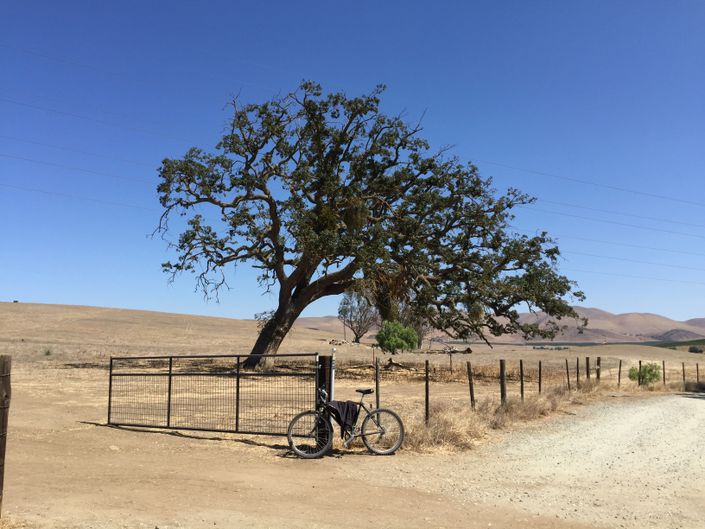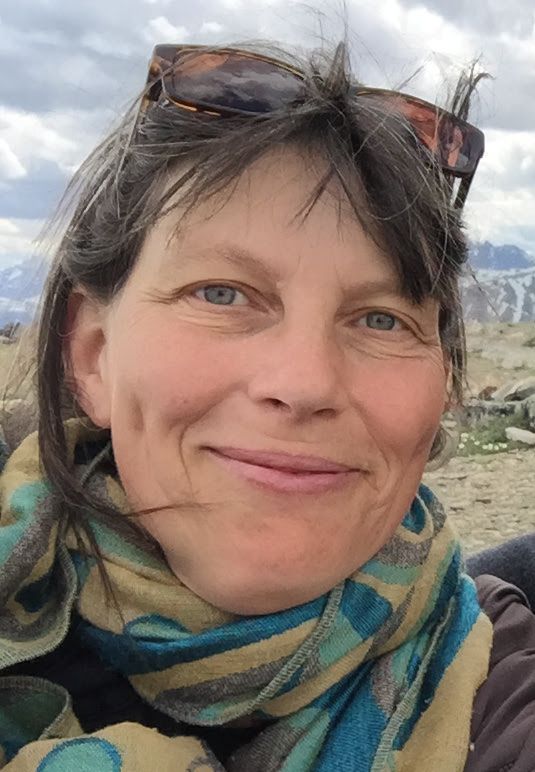
Can We Rehydrate California? Funding and Design for Soaking up Rain
A recording of our Workshop and Discussion with Rosey Jencks & David McConville, Friday, Feb 21, 8 AM PST. If you register you will get access to the recording, transcript and chat files
Enroll in Course
This workshop already happened but you can still watch the recording! Sign up for free below!
If you register you will get access to the recording, transcript and chat files
Check here for upcoming workshops
Friday, February 21st, 8 AM to 9:30 AM PST (11 AM to 12:30 PM EST) with Rosey Jencks and David McConville
This week we will have presentations by Rosey Jencks on LA's Safe Clean Water Program that provides funding to projects that help make LA county more able to soak up rain, and by David McConville about the freely available Living Infrastructure Field Kit, a recently released community mapping and co-design platform developed by Spherical and Accelerate Resilience L.A..
For the past few weeks, We've been returning to the questions that Walter Jehne and I (Didi Pershouse) tackled in 2018 on the "Can We Rehydrate California?" speaking and listening tour. (Here is a video from our 2018 gathering at Paicines Ranch.) We explained back then, that the fires, droughts and floods that California experiences are related to degradation of the natural systems that cycle water, and the soil sponge that holds water. Our ReydrateCalifornia.org website has been patiently holding space for seven years. We have a Google Group for ongoing discussion.
Now people are ready to talk and listen about a more systemic understanding of how life's processes influence fire, flooding, and drought. This workshop (our fourth in this series--but you can jump in anytime) will pick up on those ideas and more, We are using living systems frameworks to help us think strategically and come up with effective actions for people living throughout California and beyond.
Join us this Friday, February 21st, 8 AM to 9:30 AM PT (11 AM to 12:30 PM ET). (Some may stay on a longer for further discussion.) This week we will focus on funding and project opportunities through LA's Safe Clean Water Program, and the Living Infrastructure Field Kit--and how other areas might adopt a similar strategy as a way to restore water cycling, reduce fire risk, and improve climate resiliency.
If you are in dire straits and cannot pay (unhoused, unemployed, no savings,) please write to didi@landandleadership.org and let me know. Otherwise, there is a reduced rate for those who truly need it and a regular rate plus the opportunity to help others attend.
Rosey Jencks is Brown and Caldwell's National Specialty Leader in Stormwater and Nature Based Solutions. She specializes in urban watershed planning, resiliency and stormwater management. Prior to joining BC, Rosey served as a program manager at San Francisco Public Utilities Commission (SFPUC), where she provided strategic direction to local practices and supported regional and local initiatives that advanced innovation in the field. She was responsible for overseeing the award-winning Living Machine at the SFPUC headquarters -- the first building-scale sewage treatment system in San Francisco. Also, at SFPUC, Rosey led the Urban Watershed Assessment, a multi-disciplinary watershed and collection system planning project focused on integrated flood management, combined sewer overflow reduction, and integration of stormwater management in urban design and city policies. Rosey holds a MA in Environmental Planning from UC Berkeley.
David McConville is co-founder of Spherical, an Oakland-based integrative research and strategic design studio. Along with Accelerate Resilience L.A. they have developed the freely available Living Infrastructure Field Kit, a recently released community mapping and co-design platform initially tailored to Los Angeles County and tailored towards LA’s Safe Clean Water Program. This innovative tool merges visualization technology with community engagement to tackle watershed health, bioregional understanding, and climate resilience. The Field Kit reveals connections between infrastructure systems while facilitating collaborative design processes among stakeholders, municipal agencies, and community-based organizations. David holds a PhD in art and technology from the University of Plymouth.
PLEASE SHARE with people who you think will add perspective to the conversation, and who will benefit from learning more. If you can pay it forward, donations will help to make this and future workshops possible at reduced rates or for free.
The conversations in our first three workshops were really inspiring. (I'll put the recordings in the curriculum section here.)
Even though restoring water cycles as a topic is going viral, there is still a lot missing in terms of a holistic understanding. For example, many folks see the need to restore water cycles, but they see the necessary action as primarily about digging ponds (which--don't get me wrong--are great, especially when created by beavers), without also seeing the enormous landscape scale potential of growing a deep soil sponge reservoir and complex vegetation that can stay green and juicy year round, to capture water everywhere, and hold it at depth protected from evaporation.
- On January 25th we focused on framing better questions about fire, and also looked at the elements that create fire risks, and how land management can influence fire resilience.
- On February 2nd we reflected on our our own personal history with fire and how our understandings have evolved over time, and how human beliefs influence ecosystems, industry "best practices," human relationships, and policy.
- On February 9th we picked up on that conversation and worked towards a strategic plan with specific action steps that can shift all of the above.
Here's what Walter Jehne and I talked about on my podcast recently.
Alpha Lo and I also had a phenomenal conversation in which we unpacked a whole bunch of ideas of what can be done going forward--based on a more holistic view of fire, water, air/wind, temperature, vegetation, and soil structure, as they are managed by life and living systems (including but not limited to humans).
By capturing water across the landscape, we can reduce flooding and drought, but also, and importantly for fire:
- reduce the fire season by extending the length of green growth in places with seasonal rainfall,
- create healthier forests
- prime the daily rain cycle through transpiration
- cool the air and land surface
- and reduce fuel loads by creating moist surface conditions for fungi to easily decompose dry plants and wood so they are less flammable.
Get started now!
Your Instructor

Didi Pershouse is well known as an innovative international educator both in-person and online. She is the founder of the Land and Leadership Initiative. Her facilitator's guide Understanding Soil Health and Watershed Function is used in over 90 countries.
She became deeply involved in the intersection of food systems and health systems while providing rural health care for two decades at The Center for Sustainable Medicine, and wrote The Ecology of Care: Medicine, Agriculture, Money, and the Quiet Power of Human and Microbial Communities.
She has written a field training manual for the UN-FAO Farmer Field School Program and the Andhra Pradesh Community Managed Natural Farming Initiative in India, involving over 1,000,000 smallholder farmers. She was a contributing author to The Climate Emergency: How Africa Can Survive and Thrive; Climate Change and Creation Care; and Health in the Anthropocene. She was one of five speakers at the United Nations-FAO World Soil Day in 2017.
She serves on the Planning Commission for her town, is a board supervisor for the White River Natural Resources Conservation District, and is on the board of directors of Regenerate Earth, Soil Carbon Coalition and the Vermont Healthy Soils Coalition. While serving on the state appointed Payment for Ecosystem Services and Soil Health Working Group, she helped to reorient the program back to its public roots. She led a successful effort to conserve the Zebedee Headwaters Wetland while serving as a Vermont Conservation Commissioner.
She is on the Vision Council of the Global Earth Repair Convergence, and a member of the Ecosystem Restoration Alliance. She is a lineage member of the Change Agent Development Community (stewarded by Carol Sanford), and is seeding new communities of practice in a Wisdom tradition that uses living systems thinking.
